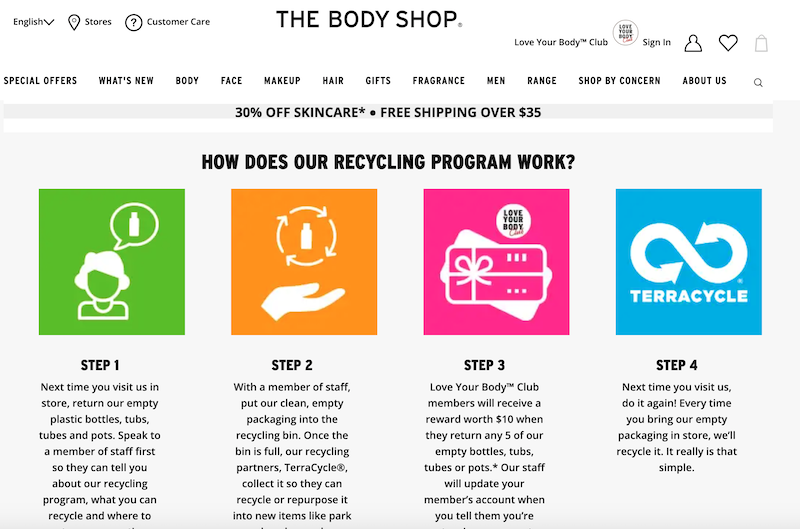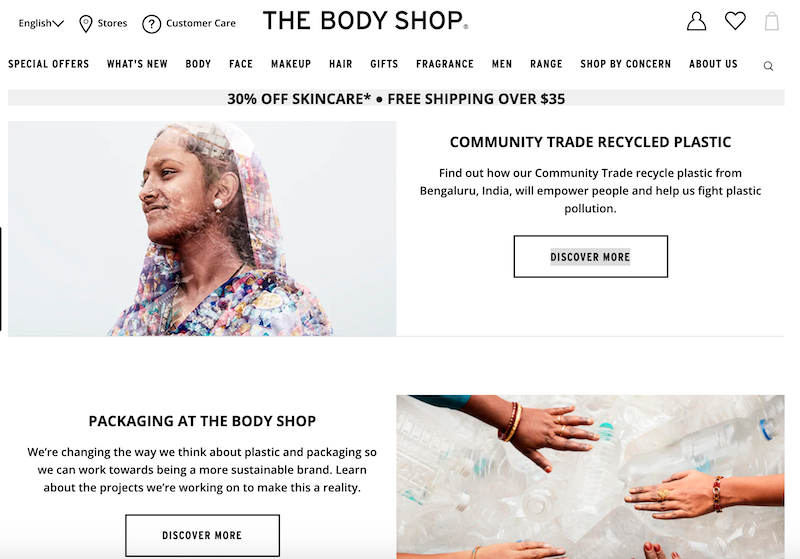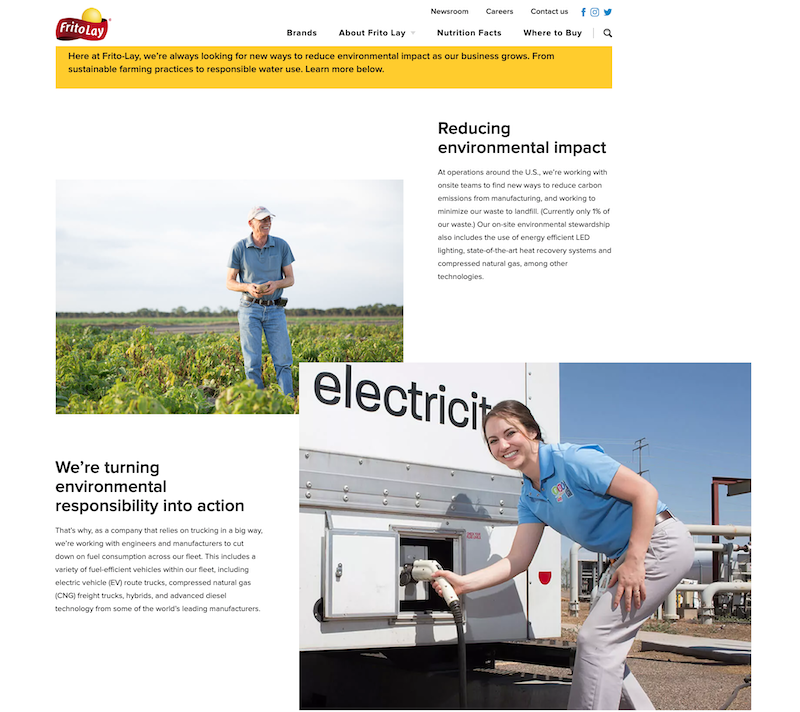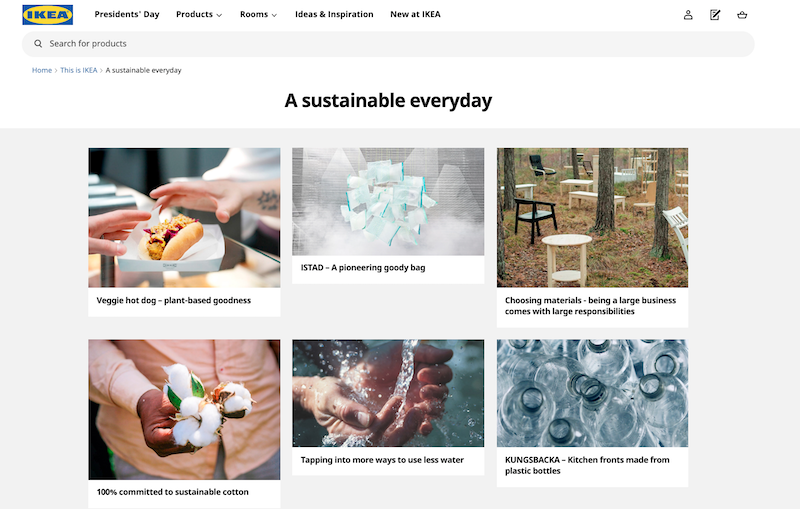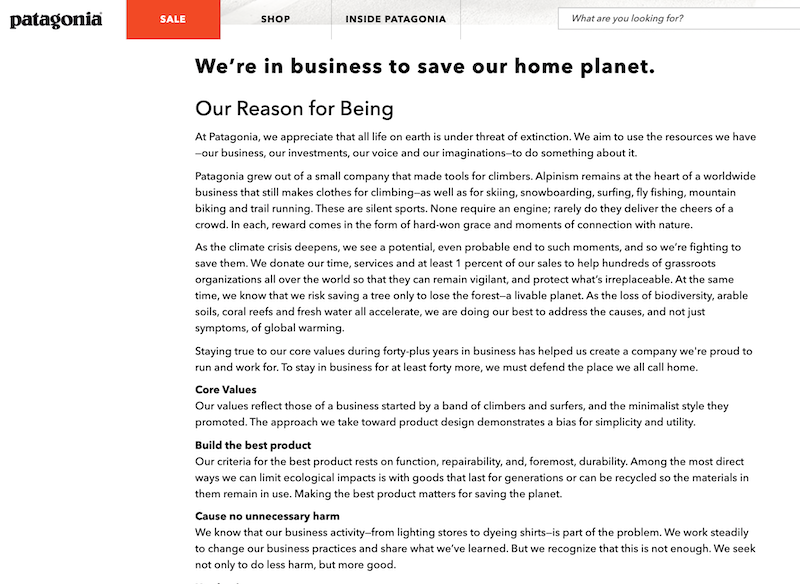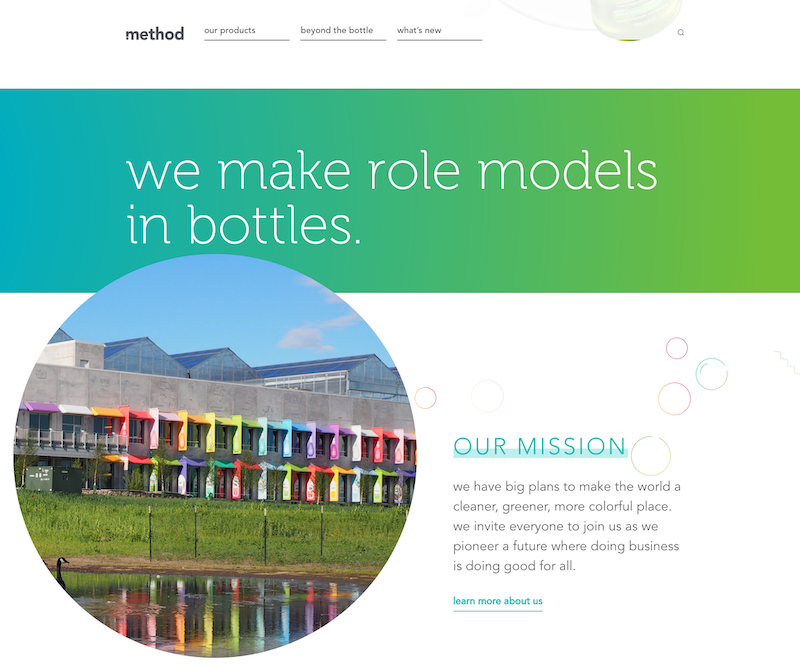As the concern for the future of our planet continues to grow, so does the responsibility to step up and take action. Consumers have become wiser and tend to favour environmentally conscious products and companies. New business advances such as Green Marketing have emerged, and new practices are shaping our lifestyles.
Businesses and corporations now have the choice to use Green Marketing as a tool, not only to have an impact on the environment but also to position themselves uniquely.
Despite the challenge of avoiding any political attachment, some companies are still opting to be Green in their approach. But what constitutes “conscious” or “green” marketing? Before you or your company can decide whether you want to implement Green practices in your business, it’s important to understand what that means and how it will affect your brand in the long run.
As you read along, note the examples of companies who have adopted Green Marketing strategies and who are making a difference along the way.
WHAT: Green Marketing Definition I What is Green Marketing?
The term Green Marketing became notable in the late 1980s and can also be referred to as Environmental Marketing, or Ecological Marketing.
Green Marketing is the practice of promoting products and services by utilizing new approaches based on environmental factors. By challenging the existing marketing practices, Green Marketing seeks to provide a sustainable perspective and approach.
Ultimately, Green Marketing focuses on a strategy that will create profit through a sustainable process. One example of this is The Body Shop. They have established their image and brand as one that is committed to protecting the environment. They have been campaigning against animal testing since 1996, and they continuously work on reducing their environmental footprint.
WHY: Why shift to Green Marketing?

Your WHY is crucial. Your reasons to use Green Marketing must align with your overall business vision. If you are choosing the Green path, it must come from an authentic place and support your brand’s core values. If you are only following a trend to appear environmental and relevant, your consumers will see through it, and you will lose credibility.
However, there is a space RIGHT NOW that is still in the process of being defined, and this is your opportunity to reassess your business values and make some changes. If you want your business and brand to be more conscious, then now is the time to take action. Now is the time to grow your business in a new positive way and shift to Green Marketing. Now is the time to make the necessary changes in your business to help the future of our planet and shift your story to a compassionate company that cares for the greater good. You and your company don’t need to choose between profit and purpose; you can do both.
If it’s not brutally clear to you already, here are some reasons why you should want to use a sustainable process in your business and shift to Green Marketing;
-
Consider the planet first and the future of humankind on earth: Commit to reducing greenhouse gases, reducing waste and protecting the social climate.
-
Reach new markets: If given a choice, there is an entire market of consumers who would favour green products and services. The audience is knowledgeable, present and yearning for quality products and services to fit their newly evolved lifestyles. According to this 2018 Neilsen report, “48% of U.S. consumers say they would definitely or probably change their consumption habits to reduce their impact on the environment.”
-
Competitive advantage: Going Green increases your customer database, which gives your company an edge and a competitive advantage over your competitors. According to the same Neilsen report, in 2018, “sales of products with sustainable attributes make up 22% of the total store. Sustainability’s share between 2014 and 2017 grew nearly three percentage points, while conventional products’ share of sales dropped by almost four. By 2021, we expect sustainable goods will make up 25% of store sales.”
-
Brand Loyalty: There is a connection between you and your customers when you share the same values and a mutual goal to protect the environment. Companies that continue to show their commitment to environmental causes see a higher rate of customer loyalty.
-
Positive Public Image: Going Green adds value to your brand. Customers will feel that your company is aware and understanding of the social climate. Your actions to protect the environment and natural habitat will amplify your brand’s image and keep you current.
-
Increase sales: The 2018 Neilsen report stated that consumers spent “$128.5 billion on sustainable fast-moving consumer goods (FMCG) products.” Since 2014, shoppers have increased sustainable product sales by 20%. By 2021, it is expected that the U.S sustainable market will reach $150 billion. In 2014, 55% of global online consumers across 60 countries say they are willing to pay more for products and services provided by companies that are committed to positive social and environmental impact,” according to this study by Nielsen.
-
Employee retention: Everyone wants to have purpose and meaning in their life. People don’t want to work just for money; they want to work for companies that will make a difference in the world.
WHO: Who should adopt Green Marketing?
All businesses should consider going Green in one way or another. As the Climate Crisis conversation becomes louder, and the state of our environment becomes direr, going Green will be absolutely necessary for everyone. Soon there will be laws and strict regulations on GHG emissions and waste that all businesses will have to follow. You might as well embrace these challenges right now and incorporate new opportunities within your fields.
Whether you are an individual, small business or a large corporation, a long-term Green Marketing strategy is absolutely necessary to help you transition to a more sustainable process.
HOW: How to apply a Sustainable Approach?

It’s how you market your product or service but also how you practice your business in general.
In manufacturing, it means producers are using environmentally friendly processes in production, such as recycling water, using renewable energy, or reducing carbon dioxide emissions. Sustainable office habits will allow businesses to conserve their resources by reducing waste, increasing productivity and promoting a healthy office. One small example is by using USB drives to share, store and organize information. You can eliminate the cost and waste of paper and ink.
Consider these Green business practices;
-
Reduce or eliminate your production/manufacturing carbon footprint
-
Reduce or eliminate toxic materials
-
Recycle existing ingredients/materials
-
Use recyclable product
-
Green design products and services – Ex: Electric cars/ solar panels/metal straws
-
Sustainable disposal
-
Green logistics strategy
-
Use renewable ingredients/materials
-
Use Green packaging
-
Reduce or eliminate plastic footprint
WARNING: Green Marketing vs Greenwashing
Adding the word Green to your products or services does not mean that what you are offering is environmentally friendly. Promoting deceitful green products or services is referred to as Greenwashing. Using Green terminology to promote a product or service that is not green, to stay relevant and on-trend, is entirely unacceptable. This goes back to your WHY and your overall company vision. Your customers will call you out on it, and this misrepresentation will cause you financial damage in the end.
WHEN: When is a good time to start using Green Marketing?
Right now! If your gut tells you that you can be doing things differently in your place of business, then you should take the time to audit your practice. Come up with an action plan on areas to make changes that will impact the environment and improve your business.
-
Research
-
Consult with Green agencies to help you make changes in your process
-
Talk to your staff and employees
-
TAKE ACTION
-
Use Green Marketing to promote your new commitment
The shift is happening right now, and it will take time for new initiatives to have an impact. Don’t let your company fall behind or miss the opportunity to leverage a shift into growth. Individuals and businesses at large are capable of significant changes in the movement towards a conscious economy.
“When a company leads by example with more progressive social practices, it can alter consumer expectations and force competitors to adopt new strategies, causing a ripple effect that changes market demands and ultimately changes the world for the better.”
– Holly Branson



